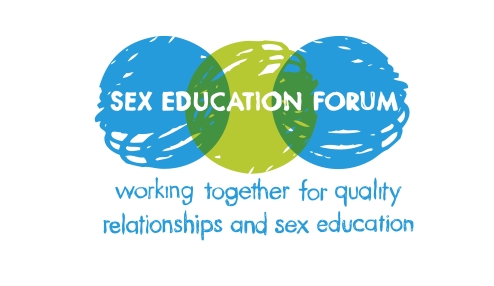Teachers and other school staff responsible for delivering relationships and sex education (RSE) often find their training 'inadequate'.
-
Survey suggests access to training for sex education teachers and other staff ‘inadequate’
-
Charities and education unions urge Government to invest in relationships and sex education support and training for schools as they launch roadmap to better RSE.
Teachers and other school staff responsible for delivering relationships and sex education (RSE) in primary and secondary schools often find their training inadequate for the demands of this teaching, a new survey suggests
29% of the 240 surveyed had received no training on RSE whatsoever, and 38% said that the training they did receive was inadequate.
The results are published as the Sex Education Forum and PSHE Association launch their joint roadmap to statutory RSE, with support from five education unions.
The roadmap is freely available to all schools and outlines 10 essential steps that schools need to take ahead of September 2020, when RSE becomes statutory in all secondary schools (or ‘Relationships Education’ in all primaries) alongside Health Education. The roadmap provides practical tools and advice for schools on everything from what policies and resources to have in place, to effectively using student voice in developing their RSE provision.
An issue uncovered by the survey, is how teaching RSE constitutes a small proportion of teachers’ roles, with only 16% of respondents saying they spent more than a fifth of their time teaching it. This raises the question of how teachers and other staff can develop PSHE education as a specialism, in the way that they might with maths or history, for example.
The topics that teachers and other staff said they feel least confident teaching pupils in secondary schools about include contraception, pregnancy options, STIs, accessing sexual health services and giving guidance on sexually explicit information online. Government has proposed that these topics are compulsory from 2020.
Respondents flagged where they needed help to meet pupils’ needs. 20% said they lacked confidence in adapting teaching to meet the needs of children with SEND, and 21% said they lacked confidence on making the curriculum LGBT inclusive.
In response, education unions NAHT, NEU, Voice, ASCL and UNISON have sent a clear message that steps can be taken now so that schools are ready to provide high quality RSE to all pupils.
Lucy Emmerson, Director of the Sex Education Forum, said:
“The vital ingredient in effective RSE are the people who teach it. The guidance on what the statutory curriculum will cover is well underway, but what training and support will be available to schools remains to be seen.
‘We have a relatively short time to prepare for statutory RSE. Some schools will need to adjust their timetable and staffing to accommodate statutory status. We hope that the roadmap will help school leaders to start taking steps now. We urge the Government to commit money to training in this area so that all staff teaching RSE feel confident and knowledgeable to do so.”
Jonathan Baggaley, CEO of the PSHE Association, said:
“There is a great opportunity to ensure every pupil, in every school benefits from high quality RSE as part of broader PSHE education. However, this won’t happen by chance, and schools will need ongoing support from the Government and organisations in the sector to make the most of this opportunity.
“Therefore, we value working with the Sex Education Forum on this joint roadmap, and endorsement from the unions for this work. We hope that schools will find the guidance, practical tools and steps valuable”
"We welcome the decision to make relationships education in primary schools and RSE in secondary schools compulsory. Rightly, schools will have the flexibility to shape this curriculum to suit the needs of their pupils and communities, and they will need quality assured and evidence-based resources and funded training to do so. The roadmap from the Sex Education Forum and the PSHE Association will be invaluable in helping schools think strategically about their approach to teaching the new subjects."
Kevin Courtney, joint general secretary of the National Education Union, said
“The survey’s findings show the urgent need for the Government to invest in training and resources to ensure schools are prepared for the changes to RSE that come into place in 2020. It is completely unacceptable that so many teachers report having no access to training, or that the training they do receive is inadequate.
“It is no surprise that so little time is dedicated to teaching RSE. RSE should be afforded the same status as other National Curriculum subjects, and the “accountability curriculum” pressures - related to Progress 8, Ebacc and the SATs - must be addressed to allow professionals the space to teach RSE well.
“We welcome this Roadmap as a key document to support schools to develop high quality RSE– and to ensure schools can start preparing for the changes as soon as possible.”
Paul Whiteman, general secretary of school leaders’ union NAHT, said:
“It is absolutely right that the government has made lessons on sex, relationships and health compulsory for all schools. But teachers will want to be confident and know they have the right skills to teach these subjects well. And parents will want to be very sure that the lessons their children are given are of a high-quality and have the right people teaching them. It is crucial that the government provides teachers with sufficient training and resources, well before they have to start teaching the new curriculum, to give all schools enough time to prepare the best lessons. This really is too important a subject to get wrong.”
Deborah Lawson, General Secretary of Voice: the union for education professionals, said:
“Education should prepare children for adult life, and sex education is a fundamental part of a healthy journey to becoming an adult. Teachers and support staff should not be expected to deliver such an important and sensitive aspect of education without the training and resources they need to do it effectively.
“We urge the Government to invest in the training staff need, so they have both confidence and knowledge to deliver the subject.”
Anna Cole, Parliamentary and Inclusion Specialist of the Association of School and College Leaders, said:
"We welcome the decision to make relationships education in primary schools and RSE in secondary schools compulsory. Rightly, schools will have the flexibility to shape this curriculum to suit the needs of their pupils and communities, and they will need quality assured and evidence-based resources and funded training to do so. The roadmap from the Sex Education Forum and the PSHE Association will be invaluable in helping schools think strategically about their approach to teaching the new subjects."
Dave Prentis, UNISON General Secretary, said:
“UNISON is proud to have been involved in this timely initiative and will be circulating information about this widely to our support staff members in schools. It is therefore vital that the government provides schools with the sufficient training and resources, that will be required to deliver this."
The ‘Roadmap to Statutory RSE’ is available fromwww.sexeducationforum.org.uk/RSEroadmap and www.pshe-association.org.uk/RSEroadmap
-ENDS-
Notes to editors
For more information, please contact the National Children's Bureau's media office.
CONTACT: Richard Newson / [email protected] / 07721 097 033. For urgent enquiries out of office hours call 07721 097 033.
About the survey
The Sex Education Forum ran an online survey for 4 weeks, from 3 – 31 October 2018. There were 240 self-selecting respondents providing RSE in schools and colleges in England. 46% of respondents delivered RSE in a secondary school, 35% in a primary school, 5% in a sixth form college and 14% teach in more than one school.
The survey results and roadmap are being presented at a conference on RSE organised by Derbyshire Children’s Services (see below).
About the Sex Education Forum
The Sex Education Forum, based at the National Children’s Bureau, is the national authority on relationships and sex education (RSE). We believe that good quality RSE is an entitlement for all children and young people and we are working with our partners, who all support statutory RSE and include local authorities, children’s, religious, health and family organisations, to achieve this. The Sex Education Forum is part of the National Children’s Bureau (NCB). For further information visit: www.sexeducationforum.org.uk
About the PSHE Association
The PSHE Association is the national body for personal, social, health and economic education – the school subject through which pupils learn about relationships; health and wellbeing; and economic wellbeing & careers. A charity and membership organisation, the Association works to improve PSHE education standards by supporting a national network of teachers and schools with advice, training and support. Find out more at www.pshe-association.org.uk
About the National Children’s Bureau
The National Children’s Bureau (NCB) is a leading children’s charity working to build a better childhood for every child. We champion children’s right to be safe, secure and supported, by using evidence and our expert knowledge to influence government policy, and help practitioners to do the best job possible, especially for the most vulnerable and disadvantaged children and young people.
For more information visit www.ncb.org.uk
About the conference
As part of the Derbyshire Education Improvement Service, there is a team of Health and Well Being Consultants working with schools to develop high quality RSE and this conference is a key element of this important work. Derbyshire Children’s Services are therefore delighted that the response to this national survey is being launched at this conference ‘Get Ready for Statutory Relationships and Sex Education (RSE)’.




Share